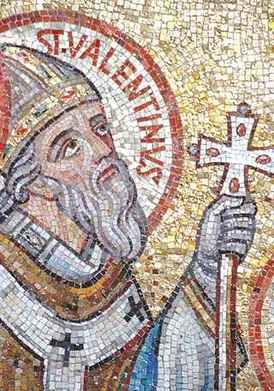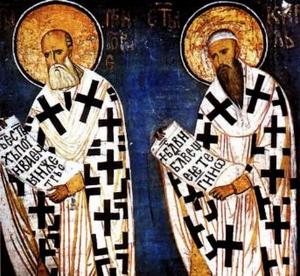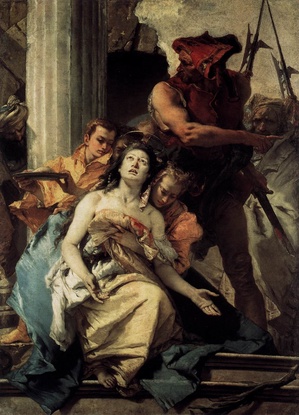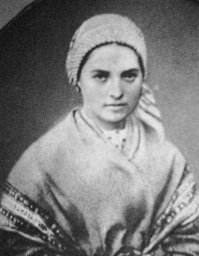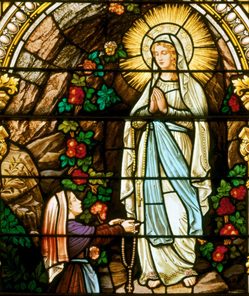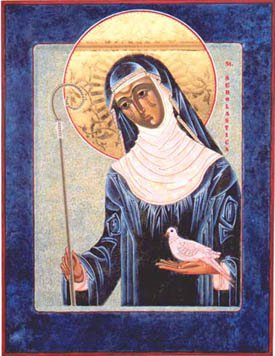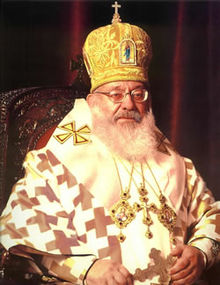The Church’s hagiographical
tradition (lives of the saints) the Roman Emperor Claudius prohibited
young men from getting married because he wanted them for his army. Valentine,
a priest of Rome, contradicted the Emperor’s wishes and married couples in
secret. This act of deviance, and the fact that he helped martyrs at the time of persecution, landed Valentine in prison with a death
sentence. He was beaten and beheaded. Saint Valentine’s relics repose in the Church of Saint Praxedes (near to the papal basilica of Santa Maria Maggiore). Corresponding with some married couples Valentine would sign his
letters, ‘Your Valentine’.
Valentine was martyred in 269 at Rome and buried on
the Flaminian Way. He is the patron saint of beekeepers, engaged couples,
epilepsy, fainting, greetings, happy marriages, love, lovers, plague,
travelers, and young people. Valentine is often portrayed with birds and roses
in iconography.
As a cultural note, the Flaminian Way is one of the principal Roman roads leading from
Rome to Gaul. The road’s construction was begun in 220 BC by Caius Flaminius.
